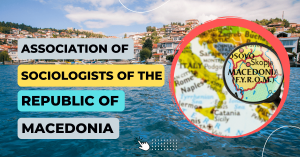History of Association of Sociologists of the Republic of Macedonia (ZSM)
The objectives of the Association of Sociologists of the Republic of Macedonia, a non-profit, non-governmental organization, are the progress of sociological knowledge, professional activity, and better integration of sociologists throughout the nation’s social structure. The Association’s headquarters are in the Faculty of Philosophy in Skopje, and its shortened acronym is ZSM. Здружение на социолози на Република Македонија is another name in Macedonian for the association ZSM.
Mission of ZSM
Sociologists and other citizens join this Association of Sociologists of the Republic of Macedonia to advance and reinforce sociology in Macedonian society’s educational system.
By establishing proper communication and collaboration with other scientific communities and the broader public at local, national, and worldwide levels, the ZSM organization assists its members in realizing their professional objectives.

ZSM Membership
People interested in sociology and desire to work toward the associations and their own personal sociological skill development objectives may become members of ZSM. Each Association member has the power to choose members for all of the Association’s bodies and organs.
Structure of ZSM
The bodies of the ZSM Association are:
- The General Assembly
- Management board
- Supervisory Board
- The President
ZSM Conferences/Seminars
ZSM conducts conferences and seminars regularly in Association with various internal universities of Macedonia and collaboration with other social science-related associations and institutions outside Macedonia.
International Collaborations of Association of Sociologists of the Republic of Macedonia
ZSM has been a member of the European Sociological Association and International Sociological Association since 2010.
ZSM organized a joint conference in association with the International Sociological Association, and sociological associations of Romania and Serbia in 2017. The conference is themed on Balkan studies with particular emphasis on comparisons based on the European Social Survey.





